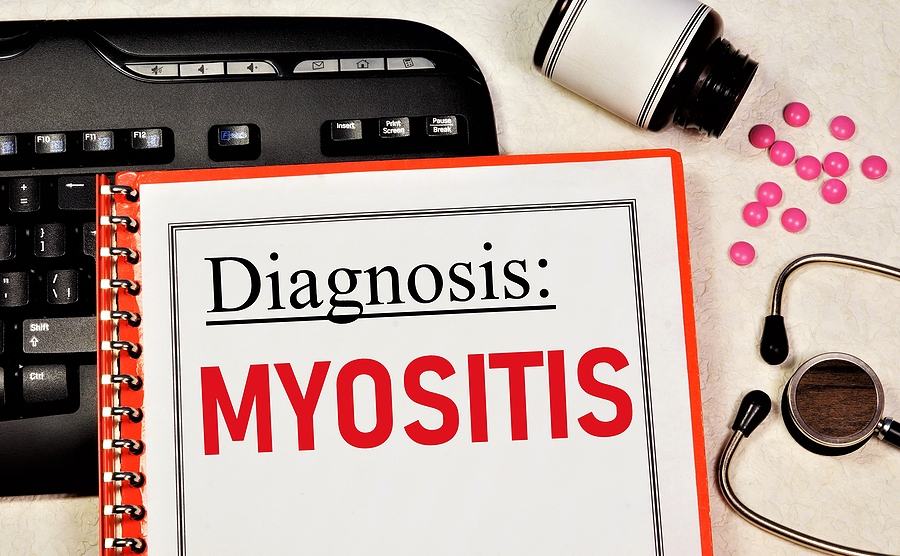Generally, the term “myositis” describes inflammation of the muscles. Exercise, injuries, infections, diseases, etc. can cause this temporary inflammation and soreness in your muscles. However, “myositis” is also often used to refer to a group of rare autoimmune diseases that cause your immune system to target your muscles, leading to chronic inflammation, muscle pain, and muscle weakness. These symptoms of myositis are long-term and usually accompanied by more symptoms.
Myositis most often affects the muscles you use to move your body, including the muscles in your:
- Legs
- Hips
- Arms
- Shoulders
- Core (abdomen)
- Back
Types of Myositis
Depending on the type of myositis, you may experience symptoms in different parts of your body.
- Polymyositis – affects multiple muscles at the same time, usually near the center of your body. Women are more prone to polymyositis than men. This condition mostly affects adults.
- Dermatomyositis – affects your skin, resulting in a skin rash, as well as your muscles. Anyone can develop this condition, including children. It can develop quickly or gradually.
- Inclusion body myositis – affects adults over 50. A degenerative muscle disease, this condition causes muscle weakness in your extremities.
Causes of Myositis
Scientists are not sure what causes myositis, but certain autoimmune diseases can trigger it. Specifically, people who suffer from lupus, rheumatoid arthritis, and scleroderma seem to be more prone to developing myositis.
Symptoms to Look For
Although symptoms may vary, depending on the type of myositis you develop, general symptoms can include:
- Weakness in your muscles
- Joint and muscle pain
- Inflammation and swelling in your muscles
- Problems breathing or swallowing
- Trouble getting up from a seated position or raising your arms
- Tripping or falling
- Difficulty climbing stairs
- Increased fatigue after walking or standing for long periods of time
- Red or purple rash on hands, eyelids, elbows, or knees
Diagnosis and Treatment
Since myositis is rare, many doctors find it difficult to diagnose. A rheumatologist, on the other hand, like the team of experts at Advanced Rheumatology of Houston, will be more familiar with the symptoms and treatments of autoimmune diseases.
To properly diagnose your condition, a rheumatologist will conduct a physical exam, ask you questions about your symptoms, and may also request blood tests, imaging tests like an x-ray or MRI, and a skin or muscle biopsy.
While there is currently no cure for myositis, a rheumatologist will be able to recommend treatment for your symptoms to provide pain relief and ensure your quality of life remains high. Certain stretching and physical therapy exercises, medications like corticosteroids, and massage therapy, can all reduce your symptoms and help you live well with myositis.
Schedule an Appointment Today!
If you are experiencing symptoms of myositis, or other autoimmune diseases like lupus, gout, psoriatic arthritis, and more, call Advanced Rheumatology of Houston at (281) 766-7886 and make an appointment today. Our caring and compassionate team is dedicated to providing relief to those suffering from rheumatologic conditions. We can provide c



